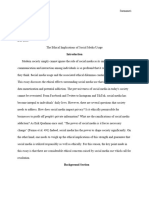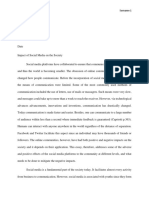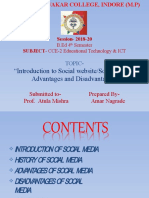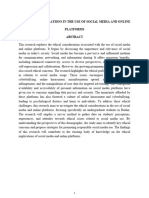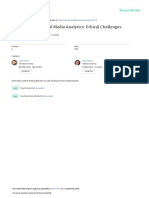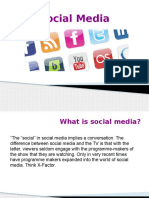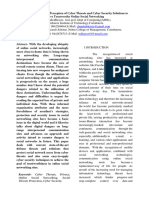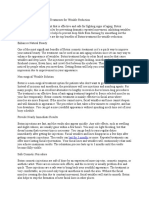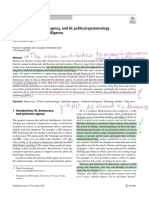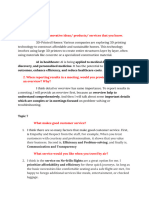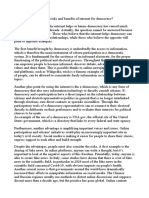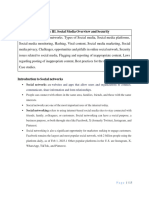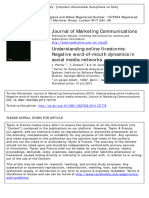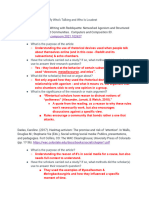0% found this document useful (0 votes)
56 views9 pagesSocial Networking - Edited.edited - Edited
The document discusses the impact of social networking on society. It covers how social networking has revolutionized communication and connection but also notes potential negatives. These include privacy concerns over how personal data is collected and used, negative effects on mental health from social comparison and fear of missing out, and disruption of in-person interactions. The document also examines how social networking has transformed politics but given rise to issues like spread of misinformation. Overall, it argues that social networking provides benefits but also downsides that must be addressed to maximize its upsides and limit harm.
Uploaded by
Kennedy WashikaCopyright
© © All Rights Reserved
We take content rights seriously. If you suspect this is your content, claim it here.
Available Formats
Download as DOCX, PDF, TXT or read online on Scribd
0% found this document useful (0 votes)
56 views9 pagesSocial Networking - Edited.edited - Edited
The document discusses the impact of social networking on society. It covers how social networking has revolutionized communication and connection but also notes potential negatives. These include privacy concerns over how personal data is collected and used, negative effects on mental health from social comparison and fear of missing out, and disruption of in-person interactions. The document also examines how social networking has transformed politics but given rise to issues like spread of misinformation. Overall, it argues that social networking provides benefits but also downsides that must be addressed to maximize its upsides and limit harm.
Uploaded by
Kennedy WashikaCopyright
© © All Rights Reserved
We take content rights seriously. If you suspect this is your content, claim it here.
Available Formats
Download as DOCX, PDF, TXT or read online on Scribd
/ 9
